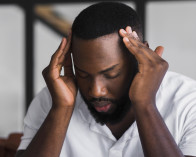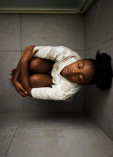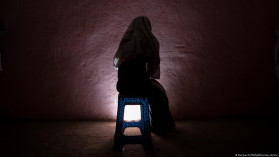Get Informed Topics Abuse & Violence Rape All you need to know about rape
All you need to know about rape
What is Rape?
Rape is a type of sexual assault. It usually involves sexual intercourse or other forms of penetration in the vagina, anus, or mouth without the other person’s permission or consent.
Rape can happen to men, women, girls, and boys.
A rapist uses force, violence, or threats to take control over the other person.
Rapists sometimes use drugs to take away a person's ability to fight back.
Rape is often done by people you know or who may be close to you.
Rape is a crime, whether the person committing it is a stranger, a date, a neighbor, a friend, or a family member.
In Kenya, sex with children below 18 years is called defilement and is a criminal offense.
I have been raped. What should I do?
If you have been raped, it is normal to react in the following ways;
- Shocked
- Self-blame
- Shame
- Anger
- Depression
- Fear and anxiety
- Trouble eating
- Difficulties with sleep - including bad dreams
- Flashbacks
- Mood swings
It is important to identify someone to speak to for healing to begin.
If you have been raped, getting help, including contacting the police, is advised. This is your decision to make.
Breaking the silence will help you and others to conquer the consequences of rape.
Where can I get help if raped?
You can get help at any health facility near you.
Remember: HIV, sexually transmitted infections and pregnancy can be prevented if you report it to a hospital within 72 hours of the rape.
Call or SMS 1190 for free professional counseling following rape and information on HIV.
Do’s and don’ts after rape
Here are some things to do and to avoid after a rape incident to gather as much evidence as possible:
Don’t:
- Do not wash or clean any part of your body or comb your hair no matter how much you want to
- Do not destroy, change or throw away or wash your clothes
- Do not put your clothes in a plastic paper bag or newspaper as this may destroy the evidence.
Do:
- Wrap the clothes in a non-polythene paper
- Take the clothes with you to the hospital and let the health care provider examine them. If possible, carry an extra set of clothes to change after the examination
- Do not change anything where the rape occurred since important evidence may be found there
- Do not dispose of a condom if one was used.
- If possible, do not pass urine or stool or wipe the genital area until you are examined at the hospital
- If you must urinate, collect a sample in a clean container and take it to the hospital
- Keep all your medical records safe.
What will happen at the hospital?
- A health care provider will examine your whole body for marks, bruises, and wounds and treat any injuries. You may feel embarrassed but the examination is necessary. No procedure will be done to you without your permission.
- You will be asked questions about rape and you need to answer them honestly. The health care provider will treat you with dignity and keep your information private and confidential.
- The health care provider will take samples such as blood, urine, vaginal or anal fluid for laboratory testing, including HIV and pregnancy test.
- You will receive treatment and your health care provider will record all this information in detail.
- If you have been to the police, give your P3 form to the health care provider to fill. This forms part of the health provider’s medical report
- If you have not reported to the police station you will be required to do so to be issued with a P3 form.
What is a P3 form?
It is a Kenya police medical examination form. It is provided for free and should not be paid for.
What happens at the police station?
- On reporting the rape, a record will be made in the occurrence book (OB) and you will get an OB number.
- The police will ask you questions about rape and cross-examine what you say in detail.
- You may be asked questions that are difficult or embarrassing but you will need to answer them frankly and without leaving any details.
- You will be asked to record a statement and sign it. Only sign when you are comfortable with what is written on it.
- You will be given a P3 form to take to your health provider to fill in. You may be accompanied by a police officer to the hospital.
What treatment do I need if I have been raped?
- Treatment for any physical injuries as necessary
- Treatment to reduce chances of HIV infection. You will be given PEP (Link to PEP)
- Treatment to reduce chances of other sexually transmitted infections
- Emergency contraceptive to prevent chances of pregnancy
- Counseling for trauma, drug adherence, and psycho-social support
If you have been affected by rape, you are not alone and you can talk to one of our counselors here ( Call us @1190)
Frequently Asked Questions
Male Body
1 questions
See frequently asked questions on Male Body
Let's Talk
Facts, tips, stories and common questions
Go to Forum





